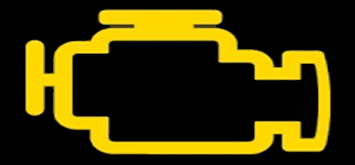
Diagnostics

Diagnostic testing using state of the art diagnostics equipment allows us to ‘interrogate’ the car’s monitoring system to help reveal underlying issues, engine management faults as well as other electrical component failures.
What is a Car Diagnostic Test & Why is it so important?
Annual check-ups from your doctor keep you in good health, right? Well, the same goes for your car. Regular diagnostic tests can detect problems with your vehicle before they require expensive repairs, or worse, leave you stranded on the side of the road after a breakdown. And while many people think diagnostic tests are only necessary when the check engine light comes on, there are many benefits to taking a proactive approach to car maintenance.
Here is why:
Of all the technological advances in the automotive sector over the decades, one of the most beneficial to consumers and vehicle technicians alike has been the computerisation of the car’s components. Using specialised software, car diagnostic tools quickly and accurately point to problem areas in a car’s engine or elsewhere, thanks to built-in processors, microchips and sensors.
What is a Car Diagnostic Test & Why is it so important?
Diagnostic tests can reveal problems within a car’s engine, transmission, exhaust system, brakes, and other major components, as well as performance issues with the fuel injector, air flow and coolant, ignition coils, and throttle.

However, a common misconception about car diagnostic tests is that technicians can use code-reading tools to determine the exact problem that triggered the check engine light.
The code tells technicians which engine or component parameters are out of range, but it does not detail the cause of the problems. That is where the good old human brain comes in handy, as the technician uses experience and expertise to diagnose the underlying problem.
What are the benefits of a diagnostic test?
Before the emergence of car diagnostic tests, identifying problems was time-consuming and expensive, especially considering car owners only brought their cars to mechanics after a breakdown or other severe malfunction. Now, computerised car components can detect problems long before they cause a breakdown. Diagnostic tools can also check a car’s computer system for manufacturer notifications and stored information about the car’s history, giving technicians a complete picture in order to perform the best repair possible.
How often should a car undergo diagnostic testing?
You do not have to wait for the check engine light to get a car diagnostic test. If you hear or feel something “off,” mechanics can use diagnostic testing to uncover the problem. However, many technicians recommend taking your car in for a diagnostic check at least once a year, which will uncover minor problems that cannot be seen or heard (and that will not trigger the check engine light).
Diagnostic testing is also a useful tool when you are checking out a used car. Both private sellers and professional car dealers should agree to a diagnostic test before you commit to buying, and if they do not, that is a sign you should walk away from the deal.
Newington
Sittingbourne
Kent
ME9 7PE